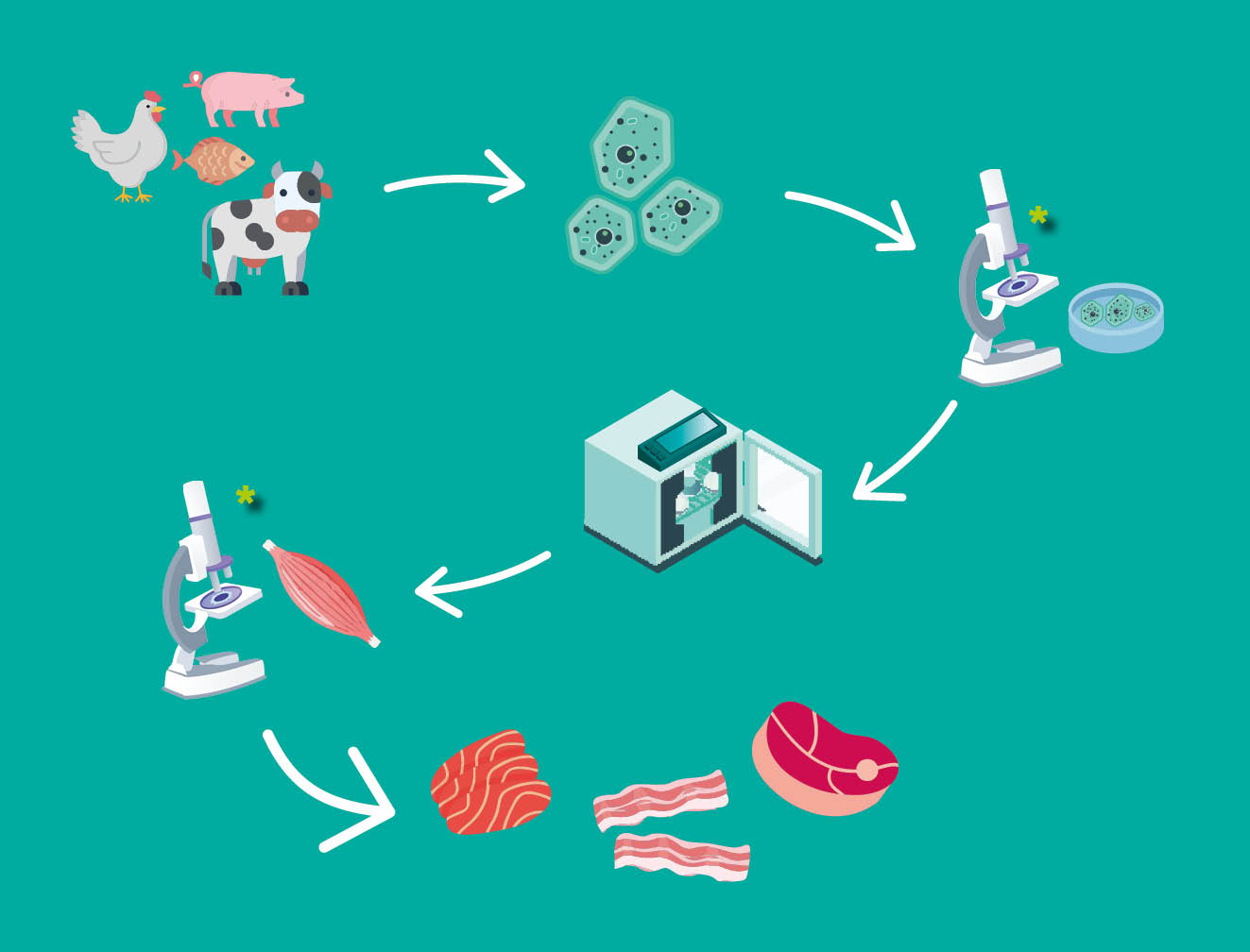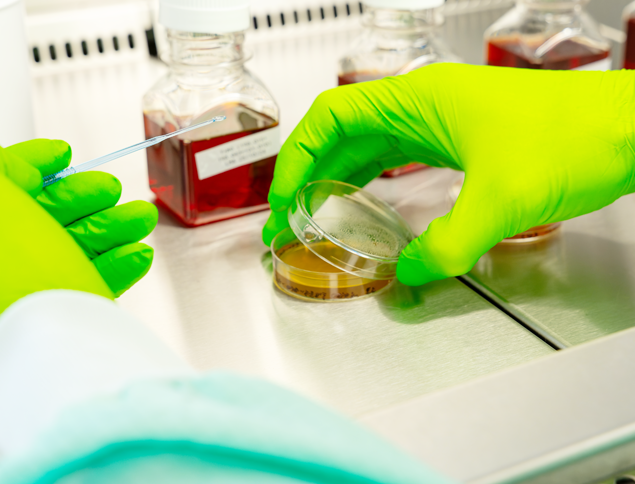Process
In any case, the process begins by isolating specific cells, such as muscle or fat cells for meat from a desired animal (for example, chicken), or yeast and bacteria for other products like milk, eggs. The collected cells are cultured in a controlled environment using a nutrient-rich medium that promotes growth and multiplication. This medium contains essential vitamins, minerals, amino acids, and growth factors that support cell proliferation.
In the case of producing meat, tissue engineering techniques are used to guide the growth of cells into three-dimensional structures that mimic the texture and appearance of traditional meat. Once the tissue reaches the desired size and maturity, it is harvested and processed into various meat products, such as burgers, steaks, or nuggets.

